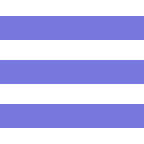Tooth-brushing Toddlers and the ‘Have-To’ Dilemma
A: This issue of dental hygiene is one of many in which parents often feel that society demands they uphold the program or risk being accused of negligence. Parents have to make sure their kids’ teeth get brushed, don’t they? Well... No, actually.
Dental hygiene is great, but “have to” is dangerous — a power give-away that robs you of your freedom to stay in partnership with your child and tempts you to resort to coercion. When you drop the “have to” you’ll gain access to an abundance of creative, partnership solutions. Below are a few of my favorite partnership solutions and my thoughts about this issue, some of which you may disagree with. That’s fine: you don’t have to agree. :)
As I see it, the human species evolved to keep healthy teeth for a lifetime, long before any kind of mechanical cleaning or dentistry was invented. So it’s not necessarily a problem for your son’s teeth to go unbrushed if he avoids the major causes of tooth decay. Even if some of his baby teeth get cavities, they’ll be replaced by healthy new ones around age six and later. There’s plenty of time for him to form good habits. That perspective can help you relax and ease out of the “have to” mindset. You’ll realize that the greater risk is that of damaging your relationship by infusing it with worry, control, conflict, and possibly even emotional trauma.
It’s better to focus on nutrition — reducing processed and sugary foods, adding more raw and living foods, and including sources of nutrients that support healthy teeth — which you can control passively by simply keeping only healthy, natural foods in the house. Also, there are simple practices and habits you can form, like having everyone swish out their mouths with water after every meal and snack (this can become a fun ritual), eating less often (just a few meals and snacks instead of “grazing” all day), and perhaps having him chew gum sweetened with xylitol (known to inhibit growth of decay-causing bacteria, but wait until he’s a bit older because... gum).
In my opinion, breastfeeding should not be limited in any way for fear of tooth decay, even at night. Also, I would either avoid dentists altogether or find one who doesn’t buy into the fear-mongering so prevalent in the field. I want all of my family’s health practitioners to be people who inspire us to greater wellness and trusting the wisdom of nature, which includes our bodies — not people who scare us into thinking life is out to get us!
Once you feel relaxed about the issue and have reconnected with your power to partner creatively, you can begin to invite your son — casually and cheerfully — to have have his teeth brushed (by you) around the time you’re cleaning your own teeth. That’ll make it feel to him more like a partnership activity. If he says no, just say okay, shrug it off as no big deal, and focus on your own teeth. Let him see that you enjoy brushing your teeth, but don’t look to him for any reaction. Trust that your model will influence him eventually.
Here’s another approach that I like even more. Hold your toddler on your hip with one arm while you brush your teeth with your other arm. Do this cheerfully for at least a few days before you even hint at him getting his teeth cleaned. Once he has gotten used to the stress-free tooth-brushing interactions, invite him to “help” you brush your teeth in a light-hearted, almost playful way. That could eventually lead to him inviting you to brush his teeth, in which case be sure to stop the moment he indicates that he’s done playing.
The whole process can unfold like a dance with an extended prelude before the main dance begins. You and your son will surely come up with your own creative moves, beyond the few I’ve suggested, and that’s as it should be...
It’s your dance, so enjoy it your way... together.




